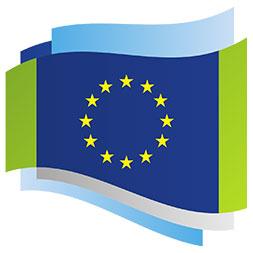Overview
- Role: The Agency supports cooperative European defence projects and provides a forum for European ministries of defence.
- Chief Executive: André Denk
- Members: 27 EU Member States
- Established in: 2004
- Number of staff: 180
- Location: Brussels (Belgium)
- Website: EDA
The European Defence Agency (EDA) was set up in 2004. It helps its 27 Member States (all EU countries) to develop their military resources.
It promotes collaboration, launches new initiatives and introduces solutions to improve defence capabilities. It also helps Member States that are willing to do so to develop joint defence capabilities.
The EDA is a key facilitator in developing the capabilities that underpin the EU’s Common Security and Defence Policy (CSDP).
Based in Brussels with around 180 staff, the EDA is headed by the High Representative of the Union for Foreign Affairs and Security Policy and Vice-President of the European Commission.
What it does
The EDA supports its 27 Member States – all EU countries – in improving their defence capabilities through European cooperation.
It acts as an enabler and facilitator for ministries of defence that are willing to work on collaborative defence capability projects.
The agency is a European defence cooperation 'hub'. Its expertise and networks enable it to cover a broad defence spectrum, including:
- harmonising requirements to delivering operational capabilities
- research and innovation to developing technology demonstrators
- training and exercises to maintenance to supporting Common Security and Defence Policy operations.
The EDA also works towards strengthening the European defence industry and acts as a facilitator and interface between Member States' military stakeholders and EU policies that impact on defence.
In May 2017, Member States agreed to reinforce the agency's mission, including by making it the central operator for EU-funded defence-related activities.
Who benefits
EU Member States (EU-27) benefit from the agency's flexible approach which enables them to decide on their participation according to their national defence needs.
It helps European ministries of defence address defence capability and training shortfalls.
The EDA has agreements with some non-EU countries (Norway, Serbia, Switzerland and Ukraine). It also has an Administrative Arrangement with the US Department of Defense that provides for stronger transatlantic cooperation in defence in specific areas, including in the exchange of information.
Contact
European Defence Agency (EDA)
- Name
- European Defence Agency (EDA)
- Website
- https://www.eda.europa.eu/
- Phone number
- +32 2 504 28 00
- Fax number
- +32 2 504 28 15
- Postal address
Rue des Drapiers/Lakenweversstraat 17-23
1050 Bruxelles/Brussel
Belgium- Social media

